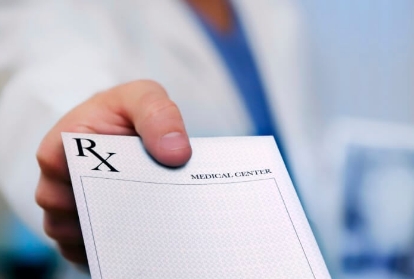Depression is a complex mental illness that is thought to be caused by a combination of genetic, biological, and environmental factors. The most common symptoms of depression include persistent feelings of sadness, fatigue, difficulty concentrating, disinterest, apathy, and changes in appetite or sleep patterns. Depression can also lead to physical problems such as headaches, digestive issues, and chronic pain. While the exact cause of depression is still not fully understood, it is believed to be related to an imbalance of serotonin, dopamine, and norepinephrine in the brain. Treatment for depression typically includes a combination of medication targeted at these neurotransmitters and therapy.
Depression is one of the most common mental disorders in the United States, with an estimated 16.1 million adults experiencing at least one episode in a given year. While depression can occur at any age, it is most commonly diagnosed in adults aged 18-25. Women are also more likely than men to experience depression, with estimates suggesting that nearly twice as many women will experience the disorder in their lifetime. The exact cause of depression is not known, but it is thought to be a combination of genetic, biological, and environmental factors. Treatment for depression typically includes medication and/or therapy.
Depression risk factors include a family history of depression, certain medical conditions, certain medications, major life changes or trauma, substance abuse and being female. While anyone can develop depression, certain people are at higher risk.
If you have any of the following risk factors, please talk to your doctor:
Family history of depression, certain medical conditions (e.g., cancer, chronic pain, heart disease, stroke)
Certain medications (e.g., beta-blockers, steroids)
Major life changes or trauma (e.g., job loss, divorce, death of a loved one)
Substance abuse (e.g., alcohol, drugs)
Female (e.g., postpartum)
Left untreated, depression can be devastating not only for the person experiencing it but also for their families and friends. However, with treatment, most people with depression will improve and many will recover completely.
Depression is a mood disorder that causes a persistent feeling of sadness and loss of interest. It can interfere with your ability to work, study, eat, sleep, and enjoy activities you once enjoyed. According to the National Institute of Mental Health, Major Depressive Disorder (MDD) is a common and serious medical illness that negatively affects how you feel, the way you think, and how you act. Symptoms include feeling depressed most of the day, nearly every day, for at least two weeks; loss of interest or pleasure in nearly all activities; significant weight loss or gain; insomnia or hypersomnia; fatigue or loss of energy; feelings of worthlessness or excessive guilt; impaired concentration; and recurrent thoughts of death or suicide.
Depression symptoms can vary from mild to severe and can include:
Feeling sad or “empty”
Loss of interest or pleasure in activities you once enjoyed
Changes in appetite or weight
Sleep problems
Loss of energy or increased fatigue
Feelings of worthlessness or guilt
Concentration problems or difficulty making decisions
Thoughts of death or suicide
If you have any of these symptoms, please tell your doctor. With proper diagnosis and treatment, depression can be managed. Don’t suffer in silence. Help is available.
Available 24 hours in English and Spanish
A diagnosis of depression can be made by a mental health professional after completing a thorough evaluation. This may include a physical examination, psychological testing, and a review of your medical history. If you are diagnosed with depression, there are many effective treatment options available that can help you to manage your symptoms and improve your quality of life.
If you have MDD, prescription treatment can help. Antidepressant medications work by correcting imbalances in brain chemicals called neurotransmitters. Commonly prescribed antidepressant medications include selective serotonin reuptake inhibitors (SSRIs), tricyclic antidepressants (TCAs), atypical antidepressants (Bupropion, Mirtazapine, Trazodone), serotonin-norepinephrine reuptake inhibitors (SNRIs), and monoamine oxidase inhibitors (MAOIs). A class of newer medications called atypical antidepressants may also be effective. Prescription treatment for MDD should be tailored to your specific needs and should be monitored by a mental health professional to ensure efficacy and safety.
While there are many effective treatments available, lifestyle remedies can also play an important role in managing depression.
Exercise releases endorphins that can boost mood and help to alleviate feelings of sadness and despair.
Eating a healthy diet is important, as certain nutrients have been shown to improve mood and cognitive function.
Spending time outside in natural light can help to reduce feelings of fatigue and improve sleep patterns.
Social interaction and spending time with loved ones is crucial for maintaining mental health and preventing loneliness and isolation.
Avoid alcohol and drugs
Additionally, it may be helpful to set realistic goals and stick to a daily routine.
While each person experiences depression differently, these lifestyle remedies can help to improve symptoms and promote overall wellbeing.

If you have a question about a prescription transfer or ordering from NextRx, we’d love to hear from you.

This will close in 0 seconds